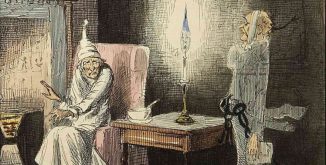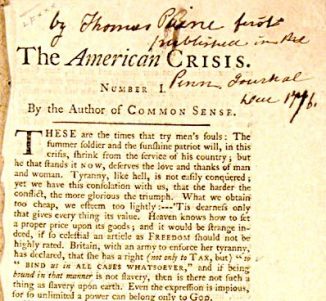163 years ago today, Italo Svevo, a pioneer of Italian literature, was born in Trieste. Considered alongside James Joyce as a father of the psychological novel, with his modernist classic, Zeno’s Consciousness. Svevo wrote two other books, which along with Zeno’s were considered flops. Nevertheless, he remains considered one of a united Italy’s finest ever authors. READ more… (1861)

The novel is presented as a diary written by Zeno, published by his doctor (who claims that it is full of lies). The doctor has left a little note in the beginning, saying he had Zeno write an autobiography to help him in his psychoanalysis. The book and the rest of Svevo’s work to boot, never leave the confines of Trieste; much the way Svevo’s friend James Joyce rarely left the world of Dublin.
Joyce championed Zeno’s Conscience, helping to have it translated into French and then published in Paris, where critics praised it extravagantly. That led Italian critics, including Eugenio Montale, to discover it. Svevo was also a model for Leopold Bloom, the protagonist of Joyce’s seminal novel Ulysses.
MORE Good News on this Date:
- The Susan Constant, Godspeed, and Discovery departed England for Jamestown, Virginia, to settle what would be the first American colony (1606)
- Ben Franklin began publishing Poor Richard’s Almanac (1732)
- The first games of the National Hockey League were played, with four teams in total, all based in Canada—since then, the league has grown to include 31 teams across North America (1917)
- The BBC World Service began broadcasting as the BBC Empire Service (1932)
- The first personal computer went on sale in the U.S. as a DIY kit, for $397, the Altair 8800, sales of which exceeded all expectations (1974)
- Wayne Gretzky, 23, became the 18th, and youngest, player in NHL history to score more than 1,000 points (1984)
- The Soviet Union freed dissident Andrei Sakharov (1986)
- The Academy Award winning blockbuster, Titanic, opened in theaters (1997
- Libya announced an end to its weapons of mass destruction program (2003)
And, 247 years ago today, Thomas Paine published his first essay under the pseudonym, Common Sense, to inspire American colonists in a language that the common man could understand. Paine knew that the Colonists weren’t going to support the American Revolutionary War without proper reason to do so, so he set out to persuade them.
The pamphlet series began: “These are the times that try men’s souls: The summer soldier and the sunshine patriot will, in this crisis, shrink from the service of his country; but he that stands it now, deserves the love and thanks of man and woman.”
It was read aloud to the Continental Army later that week, before the Battle of Trenton, to bolster morale among patriots, as well as shame neutrals and loyalists toward the cause. With strong deist beliefs, Paine stated that he believes God supports the American cause, “that God Almighty will not give up a people to military destruction, or leave them unsupportedly to perish, who have so earnestly and so repeatedly sought to avoid the calamities of war, by every decent method which wisdom could invent”. (1776)
And, 108 years ago today, Edith Piaf was born in Paris. The French cabaret singer, songwriter and actress was one of France’s greatest international stars.
Her hit song “La Vie en Rose” (Life in Rosy Hues) sold a million copies in the US alone in 1947. Written and composed by Piaf, it is one of the most familiar songs worldwide of the last century. The 2007 film of the same name tells the story of Piaf, played by Marion Cotillard whose portrayal won her the Academy Award for Best Actress. WATCH an English version of her hit, which “France’s Little Sparrow” recorded in 1950, with lines like, “When you speak, angels sing from above…Everyday words seem to turn into love songs”. (1915)
Happy 43rd Birthday to actor and singer Jake Gyllenhaal who received an Oscar nomination for his role in Brokeback Mountain (2005). He also starred in Zodiac, The Day After Tomorrow, Love & Other Drugs, Prisoners, and earned BAFTA nominations playing a journalist in Nightcrawler, and a troubled writer in Nocturnal Animals.

Gyllenhaal, whose godfather was the late actor Paul Newman, joined the Marvel Universe in Spider-Man: Far From Home last year, portraying Mysterio. In 2020, Jake became a first-time Tony Award nominee for Sea Wall / A Life. Next year, he will revive his 2016 on-stage portrayal of French painter George Seurat in the Pulitzer Prize-winning musical Sunday in the Park with George. WATCH him talk about his new lockdown obsession and sing a bit of the Sondheim score on Colbert… (1980)
Also, 44 years ago today, the classic film Kramer vs. Kramer premiered in theaters—a legal drama exploring divorce and custody issues, which was a new storyline for audiences— particularly the sympathies extended toward both sides and both genders, as a career-obsessed dad learns how to be a parent when his wife leaves him and their 6-year-old son.

The film stars Dustin Hoffman and 30-year-old Meryl Streep, a relatively new face. She won the Academy Award for Best Supporting Actress and, after nine Oscar nominations, the film won four more big ones: Best Picture, Best Director, Best Actor (for Hoffman) and Best Adapted Screenplay.
Kramer vs. Kramer not only portrays the psychology and fallout of divorce and its impact on small children (after the mom suddenly wants her son back and a court battle ensues), but the parity of parents’ rights, work–life balance, and the single parent experience. It was a major critical and commercial success, grossing $106.3 million on its $8 million budget, becoming the highest-grossing film of the year. WATCH the compelling trailer… (1979)
Also, 180 years ago today, Charles Dickens’ book A Christmas Carol was first published. The wildly successful novella depicts the story of Ebenezer Scrooge, an elderly miser who is visited by three ghosts—from Christmases Past, Present, and Yet to Come. During their nighttime visits on December 24, Scrooge is transformed into a kind and compassionate man—illustrating the real-life ability of any person to redeem themselves. Written in 6 weeks, the first edition sold out in less than a week. He began public readings of the story later proved so successful he undertook 127 further performances until the year of his death.

Dickens was, at the time, challenged by financial problems himself, even having written Oliver Twist, but was especially dismayed by the sad lot of those around him in Victorian England: he toured the Cornish tin mines, where he saw children working in appalling conditions; he was disturbed by a London school for half-starved, illiterate street children. His new story would endeavor to break open readers’ hearts to feel compassion for these struggling classes.
His exclamation “Bah! Humbug!” became sealed in the English lexicon as an expression of cynical retort toward sentimentality, and the name “Scrooge” was forever after used as a designation for miserly selfishness, and was added to the Oxford English Dictionary as such in 1982. WATCH George C. Scott’s classic scene, ‘What Day is This?’… (1843)
SHARE the Milestones, Memories, and Movies…




















